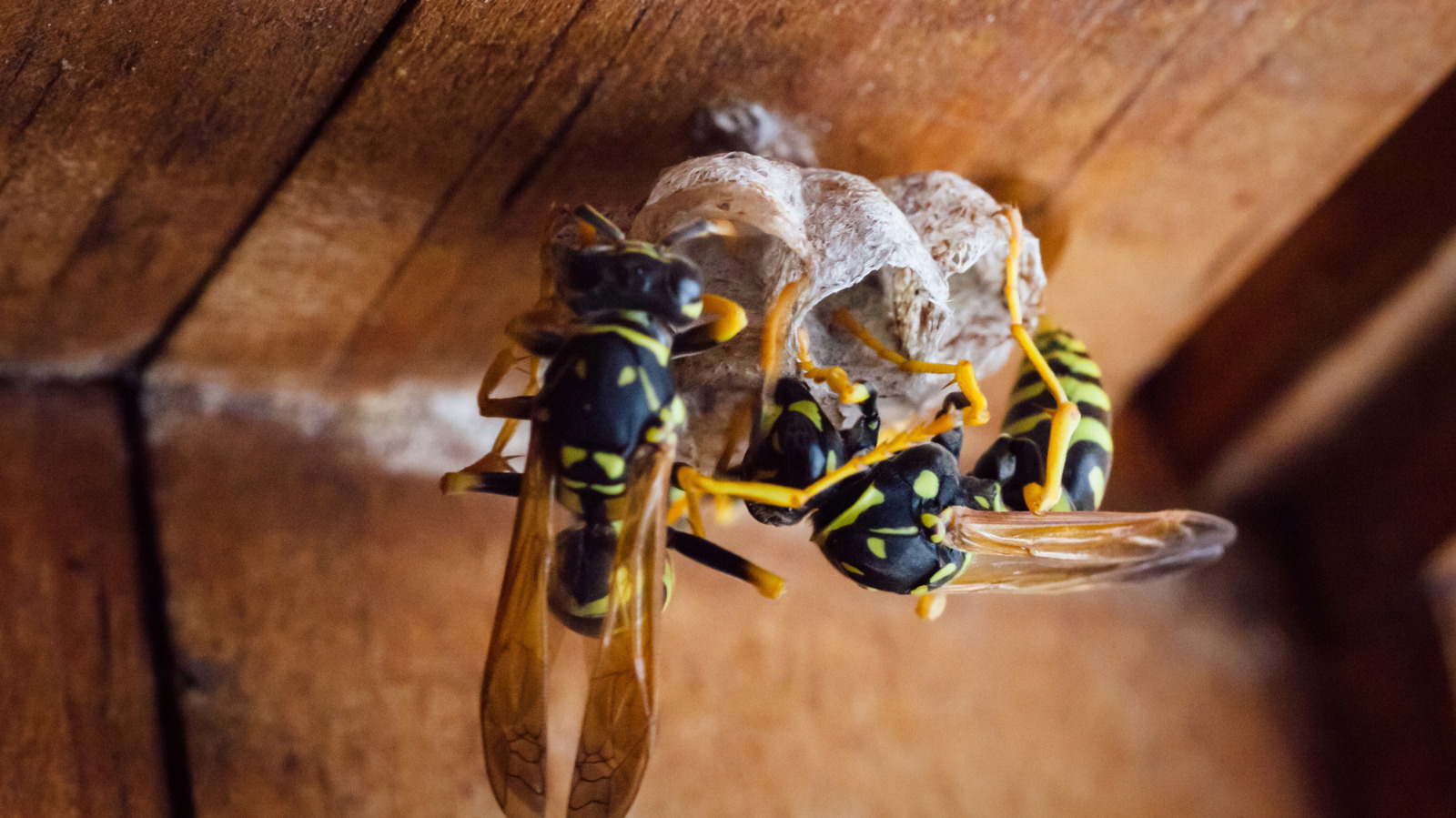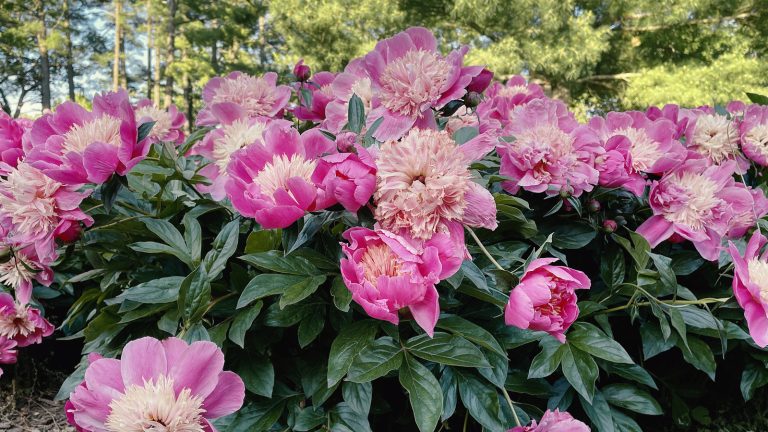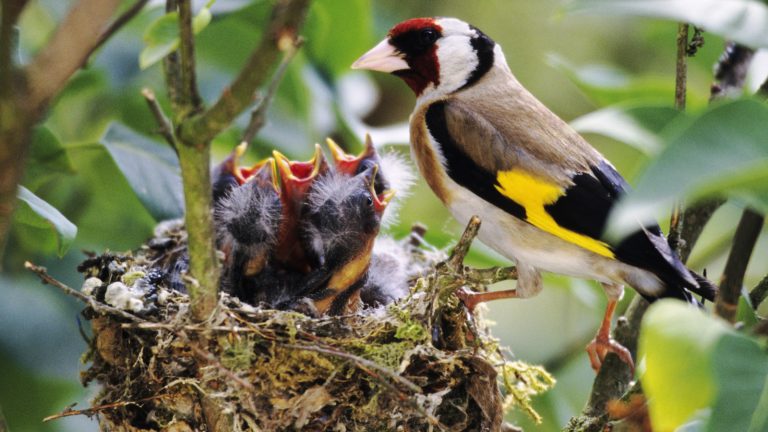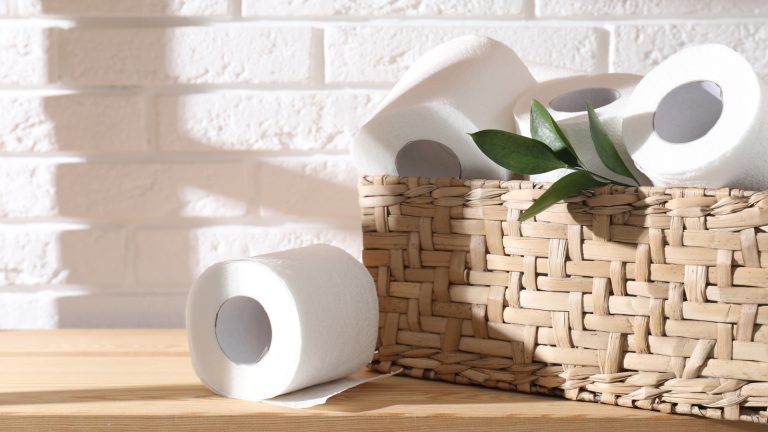
Facing a wasp issue in your backyard? While searching for simple solutions, you might encounter the suggestion to use essential oils. Although they can help in repelling wasps, essential oils aren’t the most reliable long-term solution, making this DIY approach challenging to sustain. Despite their natural origin, essential oils may also pose problems for humans and pets.
Wasps, despite their reputation, play a role in pollination and controlling harmful insects in gardens. Yet, their distinct slender bodies and vibrant colors can be unsettling. If you spot wasps in your yard, it’s understandable to seek methods to eliminate them, especially if you have children or allergies to their stings. Outdoor activities become less stressful without stinging insects buzzing around. To avoid toxic wasp sprays that are hazardous to people, pets, and the environment, you might consider essential oils as a repellent. Research published in Pest Management Science revealed that 17 out of 21 essential oils tested, including clove, ylang ylang, spearmint, rosemary, lavender, and citronella, were effective in repelling wasps. However, their effectiveness is short-lived, making it crucial to understand their use and consider other options.
Why essential oils aren’t the best solution
Essential oils can deter wasps from building nests. To use them, blend your chosen essential oil with water and add a few drops of dish soap to create a spray. Apply this to potential nesting areas. The main drawback is the short duration of effectiveness; oils can break down in just a few hours after application. At best, they last a few days. Rain or direct sunlight necessitates frequent reapplication, making it impractical for sustained use, especially since wasps can nest in various sheltered spots like under eaves, in wall voids, attics, and trees. Consistently applying essential oils in all these areas is time-consuming if daily reapplication is needed.
Despite being naturally derived, essential oils can irritate humans and animals. Many oils recommended for repelling wasps, such as clove, pennyroyal, peppermint, wintergreen, ylang ylang, and lemongrass, are considered harmful to dogs. Undiluted oils can also irritate the skin upon direct contact, and essential oil sprays may cause stains on exposed exterior areas of your home.
Alternative ways to get rid of wasps
Unknowingly, you might be attracting wasps to your home and garden. Wasps are drawn to food sources, particularly sweet items. To reduce this attraction, ensure your trash cans are tightly covered and clean up fallen produce in your garden. If you have hummingbird feeders, keep them clean and use guards to deter wasps.
A significant limitation of essential oils is their rapid breakdown, but you can still utilize some plants as natural deterrents by planting them around your home. Options like peppermint, lavender, marigolds, lemongrass, and chrysanthemums may help keep wasps at bay. Incorporate these into your landscaping or use potted plants for added protection.
If wasps are already present around your home, an aerosol wasp spray with a long reach of at least 10 feet is often the most effective solution. Spray nests early in the morning or after sunset when wasps are less active and more likely in their nests, increasing the chance of successful application. Addressing wasp problems early in the spring when nests are small is also advantageous. After spraying, promptly leave the area to avoid potential swarms. For those seeking to minimize chemical use, consider an organic or all-natural spray, such as the ecoSMART Organic Wasp and Hornet Killer.






